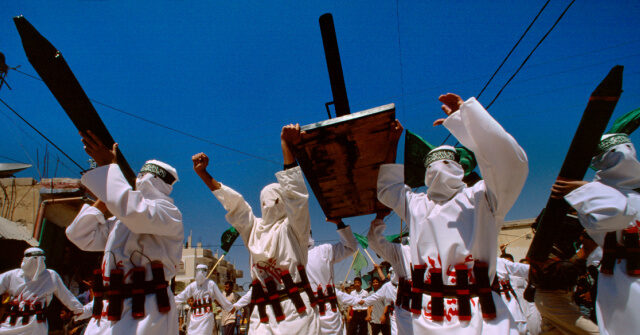On October 7, 2023, the militant group Hamas, along with other Iran-backed organizations such as Hezbollah, commemorated the first anniversary of their brutal siege of Israel. This horrific attack resulted in the deaths of approximately 1,200 individuals, marking one of the deadliest days in recent Israeli history. The assault commenced in the early morning hours, with Hamas operatives breaking into residential homes and attacking families while they slept. The scale of violence was extreme, with reports of torture, rape, and the desecration of bodies. Disturbingly, some attackers even filmed these atrocities, uploading the shocking images to the social media accounts of their victims. Public gatherings were also targeted, including a music festival where attendees were slaughtered, and more than 200 individuals were abducted and taken hostage.
Amid the somber reflections in Israel marking the anniversary of the attack, Hamas leaders expressed pride in their actions rather than remorse. Khaled Mashal, the political chief of Hamas, claimed the attack had returned Israel “to square zero” and underscored the organization’s determination against the “occupation.” He framed the brutal assault as a justified response to Israel’s military and settlement actions affecting Palestinian territories. Moreover, he falsely asserted that Hamas emerged victorious in its conflict with Israel, glossing over the significant losses that Hamas has experienced over the past year. The return of violence into public discourse was underscored as Mashal celebrated the continuous “resistance” of his people and their acts, which he claimed would shape history.
In a similarly contentious statement, Khalil al-Hayya, another prominent Hamas figure, lauded the earlier violent acts as “heroic,” which included the violent sexual assaults at the music festival. Al-Hayya’s remarks exemplified the rhetoric of glory surrounding terroristic acts, as he also praised Iranian support for Hamas’s operations against Israel. Concurrently, Hamas directed a new rocket barrage towards Tel Aviv and its neighboring regions, asserting that they had breached Israeli defenses. Reports indicated that while there were injuries, damage from the strikes was minimal, contradicting Hamas’s claims of success.
Amplifying calls for violence, Hezbollah joined Hamas in celebrating the massacre and emphasized its commitment to militant resistance against Israel, which they perceive as a colonial force in the region. Their statements further revealed aspirational genocidal rhetoric, as they echoed calls for the territory “from the river to the sea,” a phrase suggesting the complete eradication of Israel. Hezbollah insisted that Palestinian groups maintain the right to defend themselves “by any means necessary” and expressed an unwavering resolve to eliminate what they denounced as a “temporary entity”—Israel—viewing it as an illegitimate presence within the region.
The conflict between Hezbollah and Israel has escalated significantly since last year, with Hezbollah launching attacks from Lebanon that have displaced tens of thousands of Israeli citizens. Consequently, Israel has engaged in military responses aimed at eliminating Hezbollah threats, including recent airstrikes targeting their leadership and infrastructure, particularly in Beirut. Such actions reflect the ongoing tensions and hostilities that continue to evolve since the initial assault by Hamas, as Israel strives to neutralize continued threats from both Hamas and Hezbollah.
In Israel, citizens marked the grim anniversary with memorials honoring those who lost their lives in the October 7 attacks. These solemn gatherings were punctuated by an urgent plea for the release of the remaining hostages. The atmosphere was somber, reflecting both a national mourning and a resolve against terrorism. Increased rocket fire from Gaza necessitated emergency meetings among Israeli leaders, displaying the persistent insecurity and danger facing the nation. As the cycle of violence continues to unfold, both sides remain entrenched in their narratives of victimhood and righteousness, suggesting that the path to peace remains fraught with challenges.

